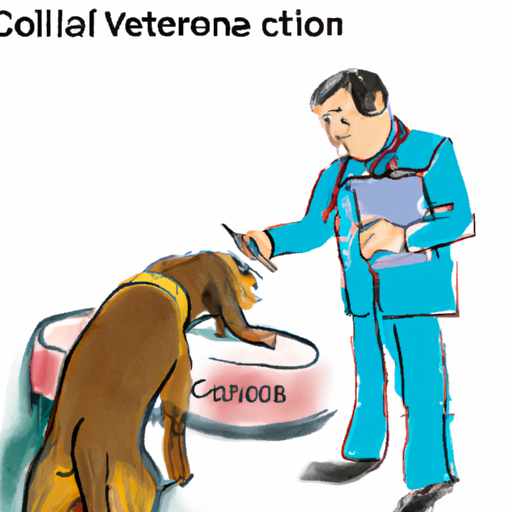As a caregiver, there’s nothing more distressing than seeing your beloved pet in discomfort. Colitis, an inflammation of the colon, can cause a great deal of suffering in dogs. But don’t worry, you’re not alone in this journey. This guide will walk you through everything you need to know about treating this condition.
1. Recognizing the Symptoms of Canine Colitis
Just like a ship’s captain on a stormy sea, your first step is to understand the signs of the tempest. Your dog can’t verbally communicate, so it’s crucial to keep a keen eye on their behavior and physical state.
- Diarrhea: This is often the most common sign. You might notice frequent, small amounts of feces, which may contain mucus or blood.
- Vomiting: Some dogs might also throw up.
- Loss of Appetite: Your dog might start eating less or show no interest in food.
- Weight Loss: If left unnoticed, this ailiness can lead to significant weight loss.
- Behavioral Changes: Watch for signs of discomfort, like restlessness or a decrease in playful activities.
2. Seeking Professional Help
Never underestimate the power of a professional. If you notice any of the symptoms above, your next step should be to consult a veterinarian. They can confirm the diagnosis and guide you on the right path.
| Steps to Follow | Description |
|---|---|
| Initial Check-up | The vet will perform a physical examination and ask about your dog’s medical history. |
| Diagnostic Tests | They may run some tests, like blood tests, fecal tests, or a colonoscopy. |
| Treatment Plan | Once the diagnosis is confirmed, they’ll provide a treatment plan tailored to your dog’s needs. |
3. Implementing Dietary Changes
As you navigate through this storm, dietary changes will serve as your compass. A change in diet can significantly improve your dog’s condition.
- High-Fiber Diet: A high-fiber diet can help regulate your dog’s bowel movements. Foods like pumpkin, sweet potato, or a dog food brand specially designed for digestive health can be beneficial.
- Probiotics: These can help restore healthy bacteria in your dog’s gut.
- Hydration: Ensure your dog is drinking plenty of water to prevent dehydration.
4. Administering Medication
Sometimes, dietary changes aren’t enough, and your canine companion might need medication. These can range from anti-inflammatory drugs to antibiotics, depending on the cause of colitis. Always follow your vet’s instructions when administering medication.
5. Monitoring and Follow-up
The journey doesn’t end with the initiation of treatment. Regular follow-ups with your vet are crucial to ensure your dog is recovering. Keep a watchful eye on any changes in your dog’s behavior or physical state and report these to your vet.
FAQ
Q: Can colitis in dogs be cured?
A: Yes, with the right treatment and care, dogs can fully recover from colitis. However, it may take some time and patience.
Q: Can I prevent colitis in my dog?
A: While you can’t always prevent colitis, maintaining a healthy diet and regular vet check-ups can reduce the risk.
Q: Is colitis in dogs contagious?
A: No, colitis is not contagious. It is typically caused by an inflammation in the colon and cannot be passed on to other animals or humans.
Remember, your journey as a caregiver can be challenging, but it’s also filled with love and companionship. With knowledge and patience, you can help your furry friend navigate through this rough patch and back to health.



